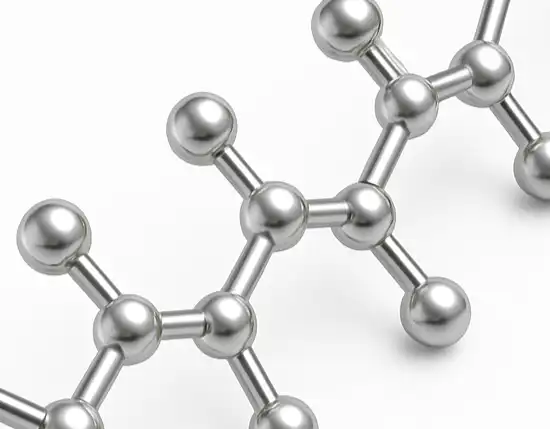Introducing the Next Generation of Research Peptides: From Cellular Rejuvenation to Cancer Defense

Introducing the Next Generation of Research Peptides: From Cellular Rejuvenation to Cancer Defense
At Peptide Biologics, our mission is to advance scientific discovery by introducing cutting-edge peptides that are redefining what’s possible in biomedical research. Our expanding catalog includes a new class of peptides with targeted applications across oncology, immunology, neurobiology, aging, and metabolic disease. These compounds represent the forefront of translational science; many of which are now being explored for their potential to complement or enhance conventional therapies.
Senolytic and Oncolytic Peptides: Dual Action for Disease Prevention
Among the most promising additions to our platform are senolytic peptides, which selectively eliminate senescent cells that are a major contributor to chronic inflammation, tissue dysfunction, and age-related disease. Our offerings include FOXO4-DRI, a well-characterized senolytic, now joined by novel derivatives such as CPP-CAND and ES2. These peptides not only clear senescent cells but, under certain conditions, exhibit oncolytic activity by targeting senescent cancer cells that may persist following chemotherapy or radiation. This opens the door to a two-phase therapeutic strategy: eliminate bulk tumor cells with conventional therapies, then use senolytics to prevent recurrence by clearing senescent tumor remnants.
Oncolytic Peptides Targeting Resistant CTCs
For researchers investigating cancer recurrence and metastatic spread, we present a new generation of oncolytic peptides engineered to target highly mutated, therapy-resistant circulating tumor cells (CTCs). These include CL04183 and CL04177, two structurally refined peptides designed to disrupt key survival pathways in aggressive tumor cell subpopulations. CL04183 and CL04177, build upon the original FOXO4‑DRI senolytic platform but have been structurally optimized to deliver greater potency and specificity. Developed by Cleara Biotech, they retain the key FOXO4–p53 interaction disruption mechanism yet are 4th-generation peptides engineered to strongly target “scarred” senescent cancer cells; those expressing phosphorylated p53 and associated with treatment resistance and tumor recurrence. These compounds are particularly relevant in post-treatment relapse settings, where standard therapies often fail to eliminate residual cancer stem-like cells.
Natural Killer Cell Activators: A New Immune Frontier
Natural Killer (NK) cells are at the center of current immuno-oncology research, recognized for their ability to destroy both cancer stem cells (CSCs) and senescent cells. At Peptide Biologics, we offer two NK-modulating peptides of particular interest:
-
Alloferon: An immune-stimulating peptide originally derived from insect sources, historically studied for its antiviral, anti-inflammatory, and anticancer properties. It has shown benefits in enhancing NK cell cytotoxicity, especially in the context of chronic viral infections.
-
Allostatine 1: A next-generation NK activator with significantly more potent effects than Alloferon. Research suggests it enhances anti-tumor responses and synergizes with therapeutic cancer vaccines, making it a candidate for combinatorial immunotherapy protocols.
Neuroregenerative Peptides: Reversing Age-Associated Decline
We are also proud to introduce Acein, a neuroactive peptide studied for its dopaminergic activity and potential anti-aging effects. Of particular interest is its active pentapeptide fragment, which has demonstrated the ability to stimulate dopamine release in sensorimotor regions of the brain.
Recent studies have revealed that Acein extends lifespan in animal models. In a 2023 study using the nematode C. elegans, low nanomolar doses of Acein increased mean lifespan by approximately 25% and median lifespan by 20%. This effect was driven by Acein’s ability to stimulate dopamine secretion and downregulate the aging-associated gene clec‑126 pmc.ncbi.nlm.nih.gov+5aging-us.com+5pubmed.ncbi.nlm.nih.gov+5.
Additionally, Acein has been shown to enhance the clearance of senescent cells—not directly, but by boosting Natural Killer cell activity via dopamine signaling—in aged mouse models. When combined with NK-cell therapy, Acein significantly reduced markers of senescence and systemic inflammation (SASP), contributing to improved tissue health and function nature.com.
Together, these findings support Acein’s potential as a powerful neuro-immune modulator with both lifespan-extending and senescence-clearing effects, enhancing its appeal in anti-aging and regenerative research.
Another exciting addition is Peptide 5A, an ApoA-I mimetic known for its ability to promote remyelination in demyelinating disease models. It works by enhancing the clearance and degradation of myelin debris, a critical bottleneck in central nervous system repair. By mimicking the lipid-transport functions of apolipoprotein A-I, Peptide 5A not only facilitates the removal of neurotoxic lipid waste but also supports the restoration of functional myelin sheaths.
This reinforces a growing body of research linking lipid metabolism and neurodegeneration, as seen with CS-6253. The connection between lipid efflux pathways and neuronal resilience is becoming increasingly evident in conditions such as multiple sclerosis, Alzheimer’s disease, and Parkinson’s; positioning Peptide 5A as a valuable tool for researchers studying CNS repair and neuroinflammation.
Cardiometabolic Peptides: A New Era of Vascular Support
The intersection of cardiovascular disease, metabolic syndrome, and aging is another area where peptides are making a significant impact. We offer:
-
D6PV: A multifunctional peptide that has been shown to lower serum triglycerides, reduce ApoB levels, and improve insulin sensitivity, making it a strong candidate for research into atherosclerosis, diabetes, and metabolic dysfunction.
-
CS-6253: Originally developed for Alzheimer’s and lipid metabolism, this peptide enhances reverse cholesterol transport and improves lipid profiles. It has also demonstrated neuroprotective effects, positioning it as a dual-action candidate for both cardiovascular and neurodegenerative conditions.
Pushing the Boundaries of Research
This is just the beginning. At Peptide Biologics, we are committed to sourcing and introducing breakthrough peptides with real scientific merit. Compounds that help researchers push the boundaries of what’s possible in aging biology, cancer therapy, metabolic disease, and neuroprotection.
Stay tuned for upcoming additions and deeper insights into the mechanisms, data, and clinical relevance behind each of these next-generation peptides.
